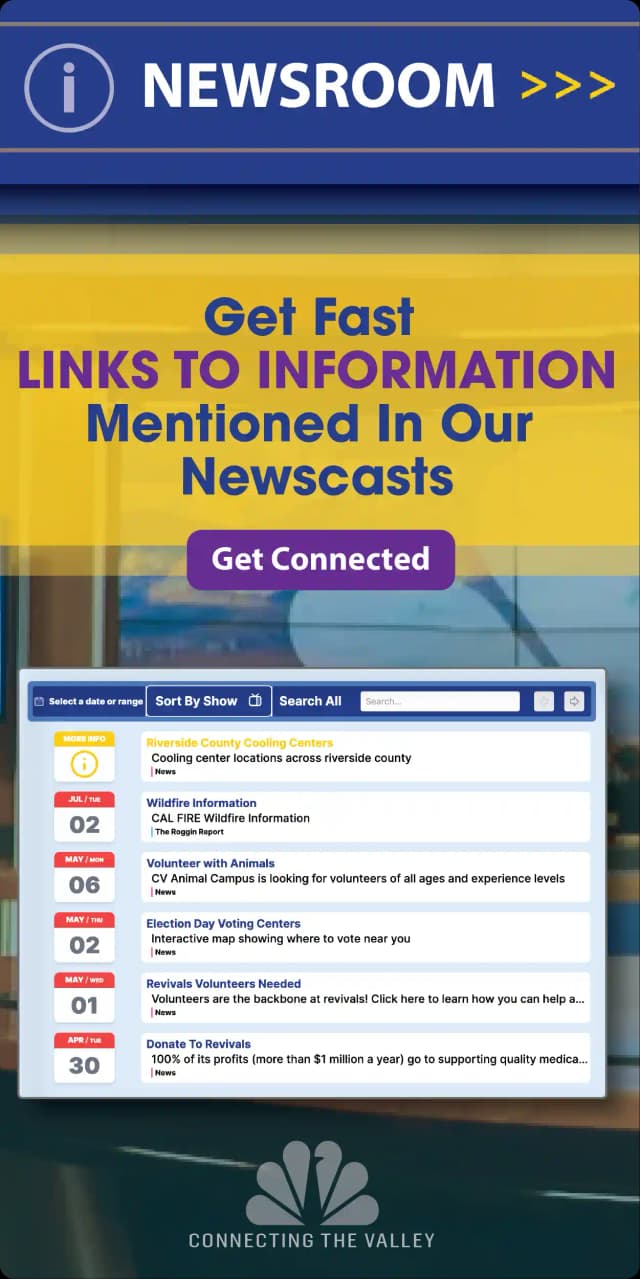CA, US & World
Local Hospital Outlook on Surge in RSV Cases, Symptoms and Prevention
A strain on pediatric hospital beds.
That’s what’s happening in at least half a dozen states, including right here in California.
And it’s stemming back to one infection: respiratory syncytial virus (RSV).
“We’re concerned for what the next couple months may hold,” Pediatric Hospitalist at Desert Regional Medical Center, Dr. Ashley Zerr, shared. “I think so far, we’ve had a couple of children admitted already just this month.”
But luckily, Desert Regional Medical Center is not seeing quite as many cases compared to other parts of the country.
“We’re not seeing quite as much as we are in some of the Midwest and the East Coast states,” Dr. Zerr explained. “But we are seeing quite a bit of it here. The interesting thing is it’s happening a little earlier this year than we tend to see in other years.”
But, they are prepared for a surge in the valley.
“We’re kind of making sure that our nurses are ready, that the team is ready and we’re trying to do a lot of counseling for families to prevent them having to come here,” she continued.
This isn’t an uncommon virus.
Nearly every child will contract RSV by the time they are two years old.
So, what should parents look out for?
“The common cold is caused by many different viruses and RSV is only one of them,” Dr. Zerr explained. “The most common symptoms are similar to common cold, such as runny nose, congestion, coughing, and sometimes fever. The ones who are younger, get infected and tend to have more severe symptoms are the kids who tend to have some more breathing difficulties.”
But, there are ways to help prevent these infections.
“It’s actually more common to see it spread in saliva, mucus and nasal discharge,” Dr. Zerr said. “So, make sure your kids are washing their hands. It can last on surfaces for up to six hours, so make sure that you’re cleaning surfaces and toys, especially kids who are in daycare, that you wipe those down consistently to try to prevent spread. If your children do get sick, there’s a lot of supportive care things that you can do like suctioning out their nose and mouth, especially before feeding or eating to try to help them breathe, and Tylenol or Ibuprofen if your child is old enough to be able to receive those. But, if you need us and your child is sick, we’re here.”
Pediatricians also recommend keeping up to date on vaccines, especially with the annual flu shot and the COVID-19 vaccine.
For more information on RSV, head to healthychildren.org where it has a detailed list of symptoms, what children may be more at risk, and more.
By: Carmela Karcher
October 25, 2022


